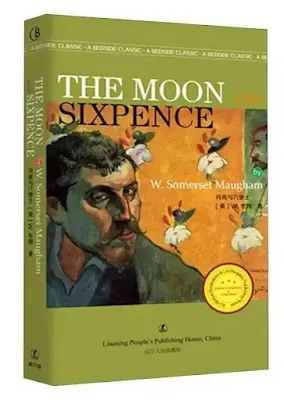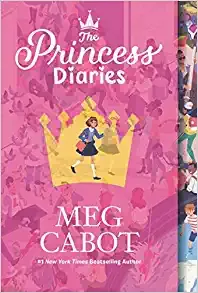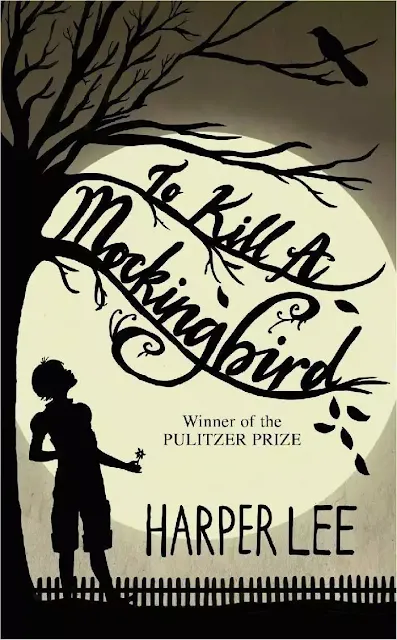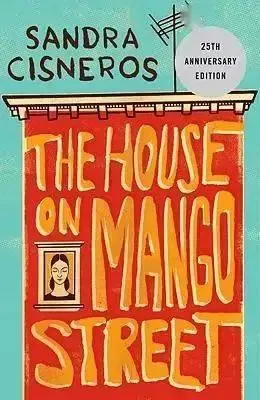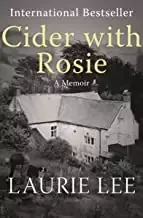The summer is hot and the weather continues to be hot. Many people don’t want to go out. They just want to stay at home, blowing the air conditioner, reading books, and catching up on dramas. On weekends, they read their favorite books at home and spend an afternoon quietly. very comfortable.
I always don't want to go out in the sun on summer weekends, I think it's a kind of delay to my skin. So, I decided to choose to read at home~
If you have had a book shortage recently and don't know what books to read, you might as well take a look at the books I recommend below. They have different styles and types, but I believe there is always one suitable for you.
Many friends think that summer is so hot that they can't calm down while reading! Then I am smart and brave, and I will tell you some books I have kept that are suitable for reading in summer and can "cool down".
This week, we have selected books suitable for reading in summer 15 Classic Books.
1. The Moon and Sixpence
——Heart to the bright moon, everything is empty
Based on the life of Paul Gauguin, The Moon, and Sixpence are W. Somerset Maugham's ode to the powerful forces behind the creative genius. The main character Charles Strickland is a staid banker, a man of wealth and privilege.
He is also a man possessed by an unquenchable desire to create art. As Strickland pursues his artistic vision, he leaves London for Paris and Tahiti, and in his quest makes sacrifices that leave the lives of those closest to him in tatters.
Based on the life of the famous French painter Paul Gauguin, British author W. Somerset Maugham's The Moon and Sixpence celebrates the powerful driving force behind the creative genius. The book's protagonist, Charles Strickland, is a staid banker with money and power.
At the same time, he also has an irrepressible desire for artistic creation in his heart. In pursuit of his artistic vision, Strickland left London for Paris and Tahiti. And in the course of his quest, the sacrifices he made completely destroyed the lives of those closest to him.
Recommended reason
You can hate Strickland because he's selfish and ruthless, abandoning his wife and children and betraying his friends for personal pursuits, but he's more than selfish, he doesn't even see himself. He said: "I have to paint like a drowning man has to struggle.
So he abandoned everything he once had, and let himself suffer from illness, hunger, and cold, only because of the huge creative impulse in his heart, did he embark on the road of sacrifice to art. The moon and sixpence are obviously two extremes, one is noble and bright, out of reach, and the other is vulgar and full of copper smell.
While we were struggling for the endless sixpence, he looked up and saw the moon, the noble ideal. After reading this book, my disgust for Strickland had long since vanished, leaving only a deep sense of awe.
Can't help but ask yourself: Have you ever left a bright moon in your heart? Or let it drown in the mundane world? This novel will take you into deep thinking about life, ideals, and happiness with great shock.
2. The Catcher in the Rye
--here's to never grow up
Holden Caufield is this 16-year-old kid who flunks out of school, right before Christmas vacation. He is not a good student and has a lot of problems at other schools.
He leaves school early and goes to New York City. So then he's in NYC and spends time with a bunch of different people. Then he goes back home and sneaks into his house to see his younger sister, Phoebe. She's mad because he failed school.
Then Holden has a nervous breakdown and seeks help from his family. It's up for debate where he winds up—it's suggested that he tells the story from a hospital in Hollywood.
Holden Caulfield, a 16-year-old, was expelled from school just before the Christmas break. He was not a good student and had many problems at other schools. He left school early and came to New York City. So then he spent a period of time in New York City with a gang of various people.
Then he got home and sneaked into the room to see his sister Phoebe. She was very angry that he was expelled from the school. Holden later had a nervous breakdown and sought help from his family. How he ends up, in the end, is up for debate - but the text suggests he was in a Hollywood hospital when he told the story.
Recommended reason
I read this book when I was the same age as Holden, I didn't like the way he was always cynical and foul-mouthed, I sneered at his attitude that he couldn't accept everything, and I also looked down on his conceit, incredible. Yes, none of these made me give up this book.
Instead, I read it every day and night like an addiction. Maybe this is the power of words. In fact, I did not fully understand the novel at that time but left a small corner in my heart for Holden, a uniquely troubled teenager.
A few years later, when I opened it again, slowly, I saw the sensitive and soft heart of Holden's anger and burnout, and read the goodness hidden by the "bad boy" label on him.
With sincerity, he also understood his disappointment and escaped from hypocrisy and selfishness in the adult world. Perhaps, there is a Holden in each of us, because he evokes the complex feelings of our fading youth because we are all like Holden - refusing to grow up.
3. The Princess Diaries
- when dreams come true
The Princess Diaries is a Young Adult book series by Meg Cabot following the exploits of Amelia "Mia" Thermopolis, a teenager who goes to Albert Einstein High School and lives with her strongly liberal single mom. Her life changes drastically when her father comes for a visit.
After being treated for cancer, he is no longer able to have children. Because of this, he finally tells Mia a secret he, her mother, and her grandmother have been keeping from her for years: He is really the Prince of the fictional principality of Genovia. Because of his illness and treatment, Mia is now Her Royal Highness of the country and the heir to the throne of Genovia.
Upon first hearing the news, Mia objects to the idea of having to become a princess and having to rule over Genovia. She also fears that this new status will make her an outcast at her school and would rather just be a normal teenager. The series follows Mia as she slowly adjusts to becoming a Princess and coming to terms with the idea of being a ruler.
The Princess Diaries is a teenage literary series by Meg Cabot about the saga of teenage Emilia "Mia" Temepolis. Mia attended Albert Einstein High School and lived with a very open-minded single mother. Her life was completely changed by a visit from her father. It turned out that her father was diagnosed with cancer and could no longer have children.
In view of this, he finally told Mia a secret that he and Mia's mother and grandmother had kept for many years: he was actually the king of the Principality of Genovia (the author's fiction). As he was ill and required medical treatment, Mia is now the country's princess and crown prince.
When she first heard the news, Mia was reluctant to be appointed as the princess to rule Genovia. She also worries that her new status will isolate her at school, so she prefers to be just an ordinary teenage girl. In the series, Mia slowly adjusts to being a princess and embraces the idea of being king of a kingdom.
Recommended reason
In every girl's heart, there is a dream of becoming a princess. We would dream of going from ugly duckling to white swan, dreaming of going from Cinderella to Snow White. Although we grow up, we gradually understand that the reason why fairy tales are beautiful is that there are few fairy tales in reality.
So, like Mia, we were simply dreaming, never thinking that this dream would one day come true. When the dream really becomes a reality, will everything still be as beautiful as a fairy tale? The identity of the princess will attract the envy of others, but it may also attract the rejection of others.
Elegant speech and manners will make people look noble, but behind this nobleness may be the loss of your true self. We may have only noticed the halo of a princess and never considered the responsibilities of being a princess. Maybe it's a dream come true story for you and me. But for Mia, it was a transformation of growth and a hymn of youth.
4. Anne of Green Gables
- when you smile at life
When Marilla and Matthew Cuthbert of Green Gables, Prince Edward Island, send for a boy orphan to help them out at the farm, they are in no way prepared for the error that will change their lives. The mistake takes the shape of Anne Shirley, a redheaded 11-year-old girl who is very talkative.
Fortunately, she has a sunny nature and an odd imagination, which quickly wins over her reluctant foster parents. Anne's feisty spirit soon draws many friends—and much trouble—her way. Not a day goes by without some melodramatic new episode in the tragicomedy of her life.
Lucy Maud Montgomery's series of books about Anne have remained classics since the early 20th century. Her portrayal of this feminine yet independent spirit has given generations of girls a strong female role model.
Marilla Cuthbert and Matthew Cuthbert live at Green Gables Farmhouse in Prince Edward Island, and when they ask someone to send an orphaned boy over to help them on the farm, they are definitely not ready for these mistakes that will change their lives.
The mistake was Anne Shirley, a very chatty 11-year-old red-haired girl. Fortunately, she has a cheerful personality and a peculiar imagination, which quickly won the hearts of her reluctant adoptive parents. Anne's dynamic personality soon brought her many friends and, of course, a lot of trouble for herself.
Her life is a tragicomedy, with some dramatic new episodes appearing every day. Lucy Maud Montgomery's series on Anne has been a classic since the early 20th century. The feminine but independent character she portrays has provided generations of girls with a strong female role model.
Recommended reason
Although she lost her parents very early, even though she was lonely and poor in the orphanage, she still worked hard and never gave up her optimistic nature. After arriving at Green Gables Farmhouse, she infected the two siblings, Matthew and Marilla, with her lively and cheerful personality, and gained a lifelong friend. She has a wild imagination, loves fantasies, and loves to name everything around her.
She's talkative, always chattering, but her words are so lively and funny. Grandma Josephine in the novel comments on the protagonist Anne: "She is as colorful and unpredictable as a rainbow." In fact, all their qualities of Anne are probably derived from her passion for life.
This enthusiasm makes her not forget to look for hope in the face of adversity, and know how to cherish and be grateful for happiness; this enthusiasm makes her good at discovering the beauty in life, and is willing to laugh at life with a positive and optimistic attitude. When you smile at life, life smiles at you.
5. The Kite Runner
——The betrayal and redemption of friendship
Amir is the son of a wealthy Kabul merchant, a member of the ruling class of Pashtuns. Hassan, his servant, and constant companion is a Hazara, a despised and very poor class.
Their uncommon bond is torn by Amir's choice to abandon his friend amidst the increasing ethnic, religious, and political tensions of the dying years of the Afghan monarchy, wrenching them far apart.
But so strong is the bond between the two boys that Amir journeys back to a distant world, to try to right past wrongs against the only true friend he ever had.
Amir, the son of a wealthy businessman in Kabul (the capital of Afghanistan), is a member of the ruling class Pashtun. His servant and loyal playmate Hassan are a much despised and very poor Hazara.
At a time when Afghanistan's monarchy was on the verge of extinction and ethnic, religious, and political tensions were growing, Amir chose to abandon his friend Hassan, with whom he had an unusual closeness.
The relationship then broke down, and the two suddenly became estranged. However, the bond between the two boys is so deep that Amir even returns to that faraway place to try to right the wrongs he's done with his one and only best friend.
Recommended reason
During your youth, did you ever have such a friend who relied on you and was loyal to you with a sincere heart, but at some inexplicable moment, with a subtle mood, you destroyed all of this with your own hands and let you Can't go back to the past, can only regret for a lifetime?
In this novel by the Afghan author Khaled Hosseini (1965), a young Amir flees after committing an irreparable act to his best friend Hassan, who tells him "for "You, thousands of times" Friends eventually left him forever after experiencing unimaginable suffering, leaving him no way to repent or redeem.
The guilt and remorse that tormented Amir day and night peaked after Hassan's true identity was revealed, but fortunately, Amir finally found a way to redemption and a chance to make amends for his faults.
More than a heartbreaking tale of friendship, the novel shows the power of reading, the price of betrayal, the possibility of redemption, and the love, sacrifice, and concealment of a father for his son.
After reading it, you will not only gain deeply moved, sad tears, and a sigh of helplessness but also a feeling of eagerness to cherish and face the troubles you have committed in the past that make you sleepless. wrong courage.
6. To Kill a Mockingbird
To Kill a Mockingbird is a coming-of-age story of Scout Finch and her brother, Jem, in 1930s Alabama. Through their neighborhood meanderings and the example of their God-like father, Atticus, they grow to understand that the world isn't always fair and that prejudice is a very real aspect of their world no matter how subtle it seems.
Through the events of those two years, Scout learns that no matter their differences or peculiarities, the people of the world and of Maycomb County are all people. No one is lesser or better than anyone else because they're all people. She realizes that once you get to know them, most people are good and kind no matter what they seem like on the outside.
To Kill a Mockingbird is a coming-of-age story about Scooter Finch and her brother Jem, set in 1930s Alabama. Through their various twists and turns with their neighbors and the example behavior of their god-like father Atticus, they come to understand that the world is not always fair and just and that prejudice is a very real part of the world they live in. No matter how unremarkable it looks.
Through the events of those two years, Scooter learned that it didn't matter how different people or identities were, that everyone in this world, and everyone in Maycomb, was the same.
No one is inferior or superior to any other because they are all human beings. She realizes that once you get to know them, most of them are good, kind people, no matter how they look.
Recommended reason
What is education? You must also agree that it has nothing to do with birth, but isn't a person well-dressed and well-mannered at the dinner table to be considered educated? Not at all.
When seeing that the father Atticus in the book is a generous, kind, honest, unselfish, humble gentleman when you see that he leads by example, and subtly influences Scooter and Jem's two children, teaching them tolerance, independence, courage, strong, and respect for others, when you see a father who always upholds patience, gentleness, tolerance, and love for his children when you see a father and children face prejudice, injustice, misunderstanding, and even revenge, you must You will understand why killing a robin is a sin, and you will surely believe that having a civilized and noble heart like them is the real education.
In fact, the theme of this novel is far more than that, but after four years, I read this book again, and I am still attracted by this theme, and I am still moved by such a tough and soft father, who is still two children. The growth is gratifying, but still can't help "old tears".
7. The House on Mango Street
In this story written by Sandra Cisneros, a young teen, Esperanza, finds herself in the middle of the Latino part of Chicago. She deals with the realities of her neighborhood and life and makes decisions about her life to come, knowing she wants more for herself than the status quo.
Written as diary-like vignettes, this book shows what determination can do for Esperanza as she struggles through life in an inner-city neighborhood. Esperanza doesn't want to belong to her poor neighborhood or the low expectations everyone seems to have for her.
Her story is one of struggle and reinvention in the face of hardship. She learns about community and the importance of understanding and appreciating her heritage. The House on Mango Street becomes a symbol of what is possible for Esperanza and her family.
In this story by Sandra Cisneros, teenage Esperanza finds herself in a Latin American immigrant community in Chicago. She deals with the realities of her neighborhood and life and makes decisions about her future life—because she knows she's not satisfied with the status quo.
Consisting of diary-like short stories, this book shows how determination can work for Esperanza as she struggles to get by in her inner-city ghetto neighborhood.
Esperanza did not want to belong to the impoverished neighborhood in which she lived, nor did she need those low expectations that everyone seemed to have of themselves. Her story is one of struggling and reinventing yourself head-on.
She understands the community and the importance of understanding and appreciating her own cultural heritage. The cottage on Mango Street became a symbol of what Esperanza and her family might achieve.
Recommended reason
It's a poetic novel, with short stories linked together, outlining the life of the protagonist Esperanza's cottage on Mango Street. The Hut on Mango Street is a red hot in the Mexican immigrant neighborhood of Chicago, where Esperanza lives but doesn’t belong. Like her family and the many neighbors who live here, she is separated from the outside world by a thick wall.
People "out there" feel intimidated when they come here; they feel intimidated when they enter a community of another color. Living on the fringes and at the bottom of society, they have personal experiences of such words as an indeterminate residence, material deprivation, spiritual emptiness, early marriage, early childbearing, and a high crime rate.
They have long been accustomed to being isolated, excluded, and discriminated against. However, Esperanza did not despair or give up. She has always had the desire to leave here, and she wants to pursue a better life. More importantly, her departure was "for others to come back" and for those "who can't go out" in this circle.
8. To the Lighthouse
"She took a look at life because at this point she had a clear idea that life was something real, something private."
Virginia Woolf is a British writer and feminist. The literary world generally considers Woolf to be a pioneer of the modernist trend and one of the greatest novelists of the twentieth century.
In her novels, she experimented with stream-of-consciousness writing methods, trying to describe the subconscious in people's hearts, taking English "a small step in the direction of the light".
"To the Lighthouse" describes the life of Professor Ramsay's family and a few close friends on vacation on an island in Scotland after the First World War. The author attempts to explore the meaning of life and the nature of the self in this simple novel, pointing out that the self may escape the clutches of the passing time and remain immortal despite the threat of death.
Friend @Cobie: Every time I open this book, it is an experience of immersing myself in European classical art, where the limited time is infinitely extended. Woolf's words are very perceptive and speculative.
The characters in the story almost forget the original intention of their actions, but just save the flowing consciousness in the vanishing self-world. If you try to piece together the plot, it will obviously appear clumsy, which is also the biggest impact on this book. misunderstanding.
I would like to compare what Woolf's book presents to classical music - timeless and long, and the seemingly scattered descriptions are just an illusion.
9. Cider with Rosie
This is a famous novel by Lori Lee. The author opens the door of memory with his cry on the hillside of his hometown, leading readers to travel through time and space, return to the insidious gray-white village, and enter into all kinds of fantasy and nightmares in childhood.
If you happen to want to watch a more dreamy and poetic story, then it must be right to choose it~ There is also a movie of the same name~
The fog dissipated, scattered villages, armchairs, boxes, stools with cracks, girls in floral dresses, and boys running on the vast grass. Everything is so poetic fairy tale.
This book is far from the hustle and bustle, and suddenly I want to live in a place like this, where there is no electricity, no car, and there is only beautiful countryside and a carefree time.
This book brings me not only the yearning like a dream but also the sincere and beautiful friendship between people, like a warm wind blowing across my face, with the fragrance of flowers, which makes people feel more relaxed.
10. Jane Eyre
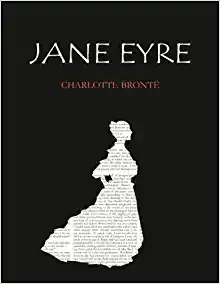
Jane Eyre by Charlotte Brontë
Some time ago, I saw many friends and neighbors discussing the "Three Views" of famous novels at home and abroad. When I saw this topic, my first reaction was that the novel "Jane Eyre" would definitely be shot. , click on relevant posts and topics to see, if "Jane Eyre"'s "Three Views" discussion really ranks among the best.
For example, "the green tea heroine is a tall, handsome and rich man who is like a scumbag", "the original wife's family makes a big fuss about the wedding of the mistress and the scumbag", "the heroine returned to the scumbag's arms after years of harming the spare tire"...
In fact, I read "Jane Eyre" quite early, because I had an ambiguous relationship with a female classmate in high school. In order to maintain a common topic with her, I read a lot of female-oriented literature. The first book I read at the time was "Jane Eyre", which opened the door to a new world.
Before this, the world-famous works in my eyes were "War and Peace" and "Notre Dame de Paris", which were written by great writers for many years, and they were written for the sake of the world.
However, in fact, when many authors of famous novels first wrote it, their mentality was no different from that of today's public account authors. They simply wrote a popular novel with high sales, but to their surprise, these works have been popular for hundreds of years, so they have become "famous works" in people's mouths, and "Jane Eyre" is one of the best.
As a popular novel nearly two hundred years ago, many of the plots of Jane Eyre still seem eye-catching today, but countless people call it a great work, not just because it tells the story of Cinderella and The abusive love of a domineering president.
In addition to the occasional plot that seems a little bloody today, we see that in the aristocratic society known for its "elegance" in the 18th century, a woman at the bottom showed her strength and independence in the face of oppression and sexism. For this independence, even in the face of his true love and property, he will never compromise. To be honest, it is worth learning for many people to this day.
Just when I was looking at the relevant information of this book these days, I happened to know that my friend was working on the bicentennial collector's edition of "Jane Eyre". When I saw the cover of it, I immediately decided to play my cheeky Spirit, I want a copy from a friend - after so many years, there is finally an edition of "Jane Eyre" that no longer uses that bland style as the cover, but chooses a woman with a bright red dress whose style is obviously in line with the heroine. as a cover.
After I removed the plastic cover and opened the title page of the book, a postcard-like thing fell off. When I turned to the back, it turned out to be a farewell letter to Rochester written in the book.
The postcard itself is written in English, and translating it is:
Do you think that I have no feelings because I am poor and mediocre? I swear to you: if God gave me wealth and beauty, I would make it as hard for you to leave me as it is for me to leave you now. God didn't arrange it this way. But our spirits are equal. Just as you and I walked through the grave and stood before God as equals.
Many people who advertise their "three views" as positive may not have the same level of understanding of gender equality as Jane 150 years ago.
11. Middlemarch

Middlemarch by George Eliot
Middlemarch» is set in the English town of Middlemarch, and depicts the stories of 5 couples, Dorothea and Casaubon, Lydgate and Rosamund, Mary, and Fred, and Jane The stories of Thomas and Celia and the Bulstrodes, accompanied by social and political changes of Middlemarch, intertwine, influence each other, and form a web of stories.
Combining his own life experiences, Eliot integrated his family, his love, his religious beliefs, and his sense of responsibility into this novel.
There are no earth-shattering events in the book, nothing more than the common social life in small towns, parental shortness, and love-hate entanglements. However, Eliot, with his delicate plot descriptions and psychological characterizations, as well as ubiquitous famous quotes, reveals the love story. In all aspects, the effect of listening to thunder in a silent place is realized.
At the same time, there are no despicable and vicious villains in the book. The protagonists of the story are well-informed and polite, and even the harm caused to each other seems to be unintentional. However, a person's dark psychology and the boost of the social environment can cause enormous life-long harm to others.
Middlemarch portrays women to the extreme, Dorothea as the Virgin, Rosamund as the vase, Mary as affordable, Celia as empathetic, Bulls as strong and considerate Mrs. Troud, the sturdy, and funny Mrs. Cadwallad... Compared to the praise of women, the men in the book except for Mr. Goth and the Reverend Fairbrother, the rest are either hideous, have Small-belly chicken intestines, indecision, or are stingy and hypocritical...
Middlemarch describes the influence of various views on love on women's marriage. Dorothea, who is immersed in the worship of authoritative men and her own religious and moral fantasy, has walked into the grave of love; indulging in pleasure, unrealistic Rosamund, who almost ended his love; Mary, who is calm, rational, and considerate, has harvested perfect happiness.
People in love are blind, very easily immersed in their own fantasies, blind to the mountains, easily magnify the other party's advantages infinitely, and do not consider real life in the future. In this regard, «Middlemarch» undoubtedly gives Romantic women a pot of cold water, which can be called a guide to avoiding pitfalls in women's marriage.
Middlemarch also showed us the power of choice, Mr. Bullstrode's wrong decision almost ruined himself and others, Fred showed us that prodigal sons pay nothing, and Lydgate succumbed to life and gave up her dream, but it was also considered a lost mulberry elm, and Dorothea, who walked into the grave of love, abandoned the shackles of morality and public opinion, followed her own heart, and finally achieved happiness.
We may have setbacks in our lives, but we still have the power to make choices, which can lead to different forks in our lives.
12. Lady Chatterley's Lover

Lady Chatterley's Lover by D. H. Lawrence
In the course of human self-emancipation, there are bound to be countless milestones. Unfortunately, "Lady Chatterley's Lover" is one of them. It has brought a great reputation to Lawrence, and at the same time, it has brought much more to the book. Bad fate.
Even today, how many readers would consider it entirely a novel? When we put it in the context of modern society, we are somewhat disappointed: there is nothing written in it. Is this worth a banned book too?
The truth is that many people read Lawrence, but too few understand it. The classic of "Lady Chatterley's Lover" is that it confronts the dilemma faced by the human spirit in modern society, namely: the sharp conflict between instinct and social value, when the spirit and the flesh are separated, what should we tend to To whom?
The hypocrisy of the former and the depravity of the latter. From ancient times to the present, civilization has been looking for a compromise route, but the problem is that any reconciliation is ultimately hypocritical, and will use the order as an excuse to oppress and tailor human nature. However, Is this formed self still the real self? When we become creatures, what will be our worth and dignity?
Civilization and impulse are natural enemies. When we see that the impulse of life contains huge destructive power and will cause harm to social organizations, we establish civilization, but the essence of civilization is self-regression. When this regression finally turns spiritual self-castration into voluntary, then, does such a civilization still have meaning?
From "Anna Karenina" to "Mrs. Bovary" and "Mrs. Chatterley's Lover", Western literature has always tried to examine civilization from the perspective of both genders. It contains the following subtext: If even the most primitive and essential impulses of the sexes are distorted, then our spirit must have encountered a huge predicament, and we are losing the foundation of life.
Lawrence has no solution, in Acura and Praise, he is full of doubts, and he does not believe in returning to the original passion, but other than that, can we have any other choice?
Life is a boundless journey because we don't know the beginning and end, so we are doomed to waste this life. So, Connie revealed, it was her heavy redemption since the result is doomed to fail, so why don't we fight? This is a spiritual history of a person, and it is a living portrait of the escape of mankind as a whole. And this is the root cause of people's anxiety.
Book luck is human luck, if you tell the truth, you are destined to pay the price. Fortunately, as posterity, we finally have the freedom to read it. This is especially worth cherishing.
13. The Portrait of a Lady

The Portrait of a Lady by Henry James
After reading the book, I found out about Campion's film of the same name and re-watched it, it is interesting that the director highlights the sexual attraction in dealing with the heroine's romance with Osmond, who holds his daughter on his lap, fingers Touching the back of her daughter's hand gave the heroine a lot of stimulation.
This is a very interesting point of view because the original book gave me the opposite feeling. The American suitors who traveled far and wide were the manliest and ugly, but The character is firm and active, and as a European, Osmond happens to be the least sexually attractive.
He seduces the heroine with subtle speech, elegant demeanor, sensitive artist temperament, and high-quality home furnishing.
At the end of the novel, the American suitor kisses the heroine, the author wrote:
"His kiss is like white lightning, flashing, flashing, and then staying there. Strangely, when he kisses her, she seems to feel All the attributes of his unbearable masculinity, all the qualities she hated most, she saw that his face, his figure, and all the aggressive things in his appearance had a strong content, and now they were all It is intertwined with his crazy actions."
Quite intriguing, what inspiration did Isabelle get from that kiss? Is it the same-mindedness of fellow Americans, the ultimate awakening (she loves him, loves his masculinity)?
Or on the contrary, disgust, understanding why she wanted to leave the United States in the first place, yearn for Europe, and break free from the bondage of men (don't forget that she faced a marriage proposal from an American suitor before leaving the United States)? Could it be from this kiss that she discovered that she doesn't like men at all!?
Henry James designed a very ambiguous and diverse ending, full of possibilities for multiple interpretations. From the beginning to the end, I don't think Isabel loves any of her suitors. She seems to be Kaguya in the Tale of Bamboo Tori and refuses with determination. Any suitor, her cousin is on the verge of being seriously ill and is asexual. And her relationship with several female friends is more intimate.
Of course, I think this is just a conjecture based on the clues in the book, and I don't even take it seriously, but it's not necessarily impossible.
Regarding the novel, I think the author's strength is that he writes about the attraction, seduction, and corrosion of European civilization to Americans, but there is no really important European character.
The two seductresses in the book, Mel Madame and Osmond, who seem to be the best representatives of France and Italy, are in fact pure American immigrants, which makes it even more intriguing.
14. Anna Karenina

Anna Karenina by Leo Tolstoy
"Anna Karenina" is the greatest and most perfect novel I've ever read—although Levin's tiresome, didactic theology and pacifist musings add a bit of noise at the end.
In contrast, "Les Miserables" is patchwork, "Ulysses" has an erudite bookishness far from life, and the depth of "Reminiscence of Time Is Like Water" is also partially lost in the decadence of disordered love.
Thoughtful "The Brothers Karamazov" may still fall short in perceived authenticity, and its somber tones are less human dignity than the aristocratic tones of "Anna Karenina", and Tolstoy himself.
The "War and Peace" is, in my opinion, hardly comparable to "Anna Karenina": the historical-political scale of the nation in "War and Peace" does not leave enough room for personality, and Once infected with theology on this scale, it is difficult to avoid the strong ignorance color;
in contrast, the love and betrayal of "Anna Karenina" can best express personality, and can touch theological issues with a sensitive conscience, Extending outward into political society.
"Anna Karenina" uses a touching tragic love story to see and reflect society and an era: in it, we can feel the tenderness and purity of aristocratic girls, the aristocratic taste and fashion of the upper class, and the impact of European culture. The inevitable disintegration of the lower noble society, the emergence of various social problems and trends of thought, the sweetness and quietness of manor life...
The plot is divided into two clues: on the one hand, Vronsky, a wealthy aristocratic officer who was once very popular in the house of the girl Jedi, met with Anna, the wife of the cabinet minister Karenin. go abroad.
This ruined Karenin's career prospects, and Karenin, who was looking for solace in religion, was unable to divorce Anna with dignity.
Anna, who abandoned her son and husband, was rejected by the upper class after returning to the country, and her only remaining reliance was Vronsky's love. the snub.
Anna commits suicide by lying on the rails amid jealousy, despair, and rebellion, which in turn destroys Vronsky, who takes to the battlefield to find his way out of the outbreak of the war against Turkey; on the other hand, the simple and energetic landowner Levin Carry out various unsuccessful reforms and reflections in the manor, pursue and marry Ji Di.
Anna is beautiful and sincere, her lover Vronsky is brave and single-minded (on the one hand and almost twice for Anna), and her husband Karenin is upright, innocent, and tolerant.
The final tragedy of the tragedy can be traced back to the strong challenge to tradition made by Anna's love, which is not tolerated by religion and custom.
In fact, for a wealthy person in the upper class, derailment is a common and tolerated thing, as long as the parties are careful to live on the edge and not offend the mainstream. But Anna is far from this.
For this love, she abandoned her husband and her lover and eloped to Europe; she tried to obtain a proper right for this love in mainstream society or society; for a period of time, Anna deliberately did not resolve the divorce with Karenin and married Karenin.
The problem with Vronsky's marriage is that she wanted to rely on love alone and not on legal marriage, "I am not his wife, and he loves me as long as he pleases."[852] All this keeps Anna in a relationship with tradition.
In the violent conflict between customs and society, facing the constraints and demands of Anna's love, Vronsky and Anna, who finally lost their love and were left with only responsibility, had an irreparable rift.
It started” [1013], Anna’s suicide was not only to free herself, but also to punish Vronsky: after chasing a married woman, she forced the woman to commit suicide, and it was always chaotic and then abandoned, which made Vronsky in the society. lost all dignity.
15. Tender Is the Night
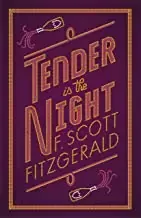
Tender Is the Night: A Novel by F. Scott Fitzgerald
Originally, I read it with the mentality of understanding American culture, but I was deeply moved by the content and even cried at the end. If "The Great Gatsby" moved people more or less because I had a good impression of Gatsby's unrequited love, this time I felt the pain of Dick.
Suppressing yourself to take care of others, and eventually losing yourself, is both a true tragedy for Fitzgerald himself and a common story that happens to millions of people who think they are kind but are weak and selfish.
I read it once in high school, and the first impression at that time was that Nicole was pitiful, and Dick was just a vulgar psychiatrist, but after so many years of re-reading, I found Naoko and Koyuki from the two.
It seems that Haruki Murakami really loves Fitzgerald from the bottom of his heart. Dick's best skills, like Koyuki, are social skills, subtly flattering people, and then taking Nicole, who is mentally broken at any time, with him. into everyone's social circle.
Sometimes I also feel that Dick's tragedy is often a mid-life crisis that arrives early. Fitzgerald seems to have more or less the indifference and hypocrisy of high society in his writings, but I think this is more of his personal feeling, and Dick, as a trained psychologist, would have long since analyzed it himself.
On one level, it is calmer to accept or even ignore the surrounding atmosphere. Sometimes it's hard to tell if he's really in love with Nicole, or if it's a doctor's nature. His poisonous tongue is very characteristic of a psychiatrist, no wonder Marinos loves and fears him.
My favorite scene is when Dick says goodbye to the beach he built after deciding to divorce and their happy time in Paris. It is hard to imagine that such a novel with a sense of camera has not had a particularly good video version until now. It may not be able to reproduce the beauty of the French Riviera in the 1920s.
It's a pity that Fitzgerald can't let go of Dick as completely, as at the end of this novel, instead of deceiving each other, killing passion in memory, and moral oppression, it is better to start all over again. So this novel is more or less a happy ending for both parties.


